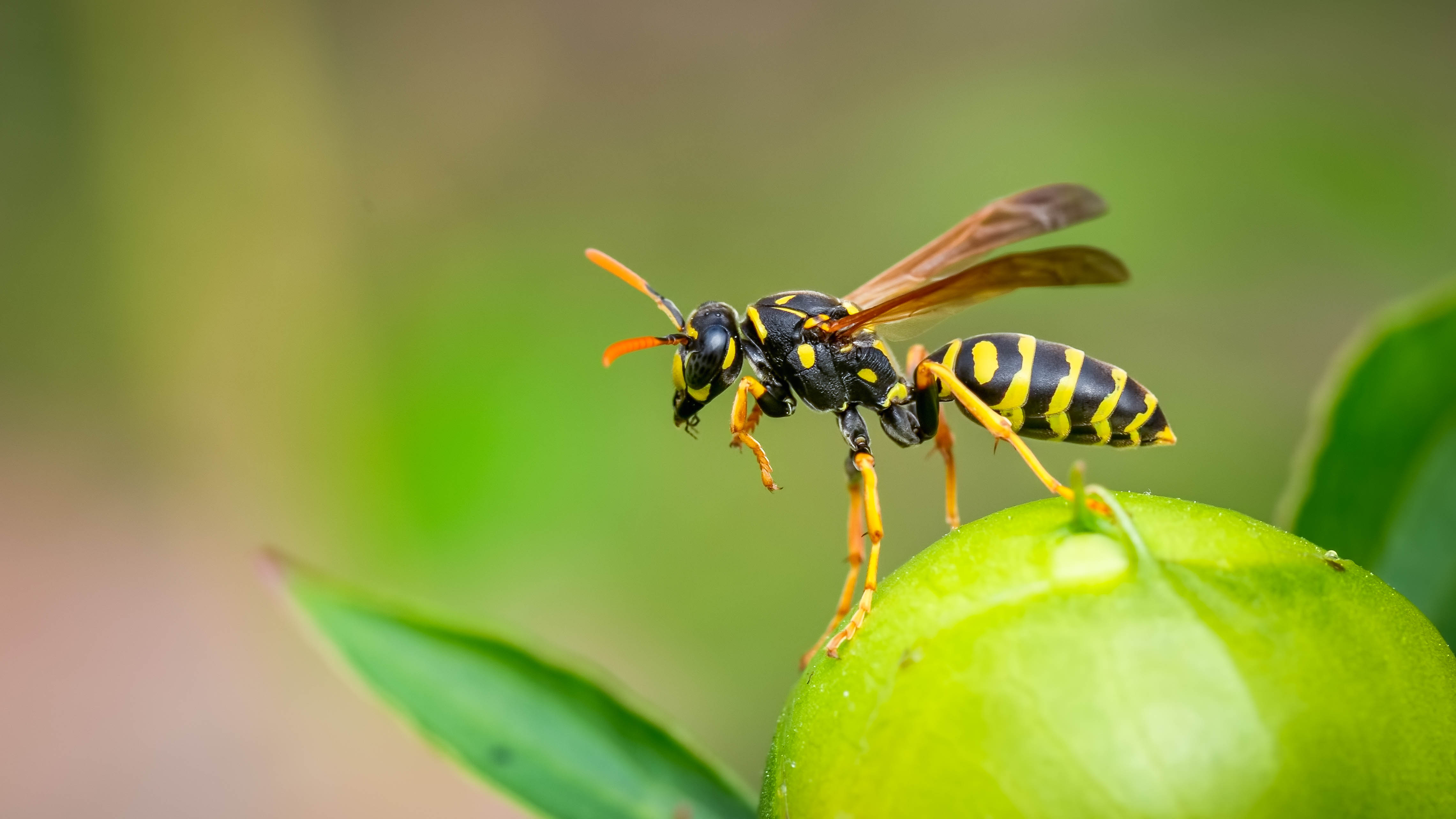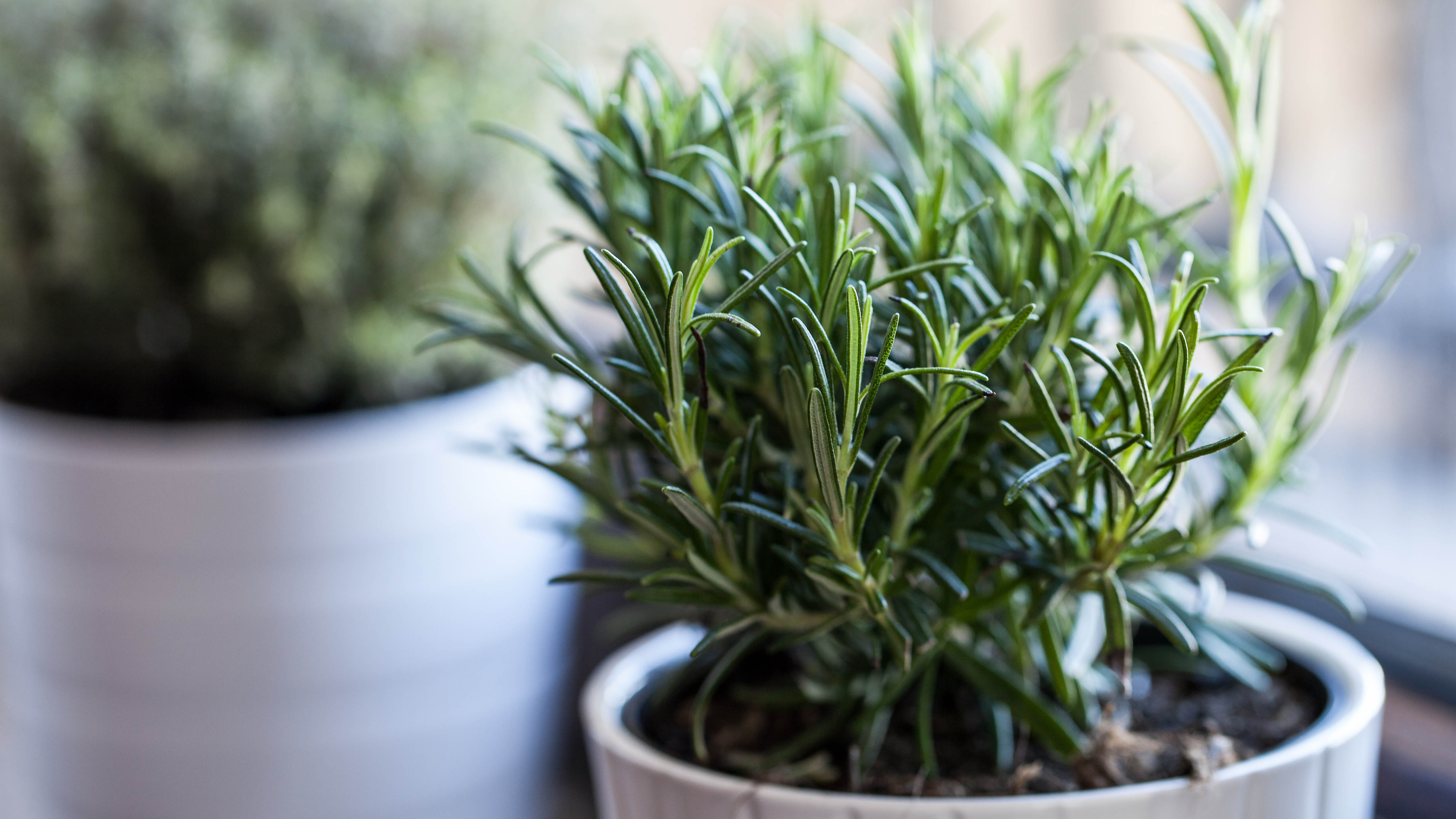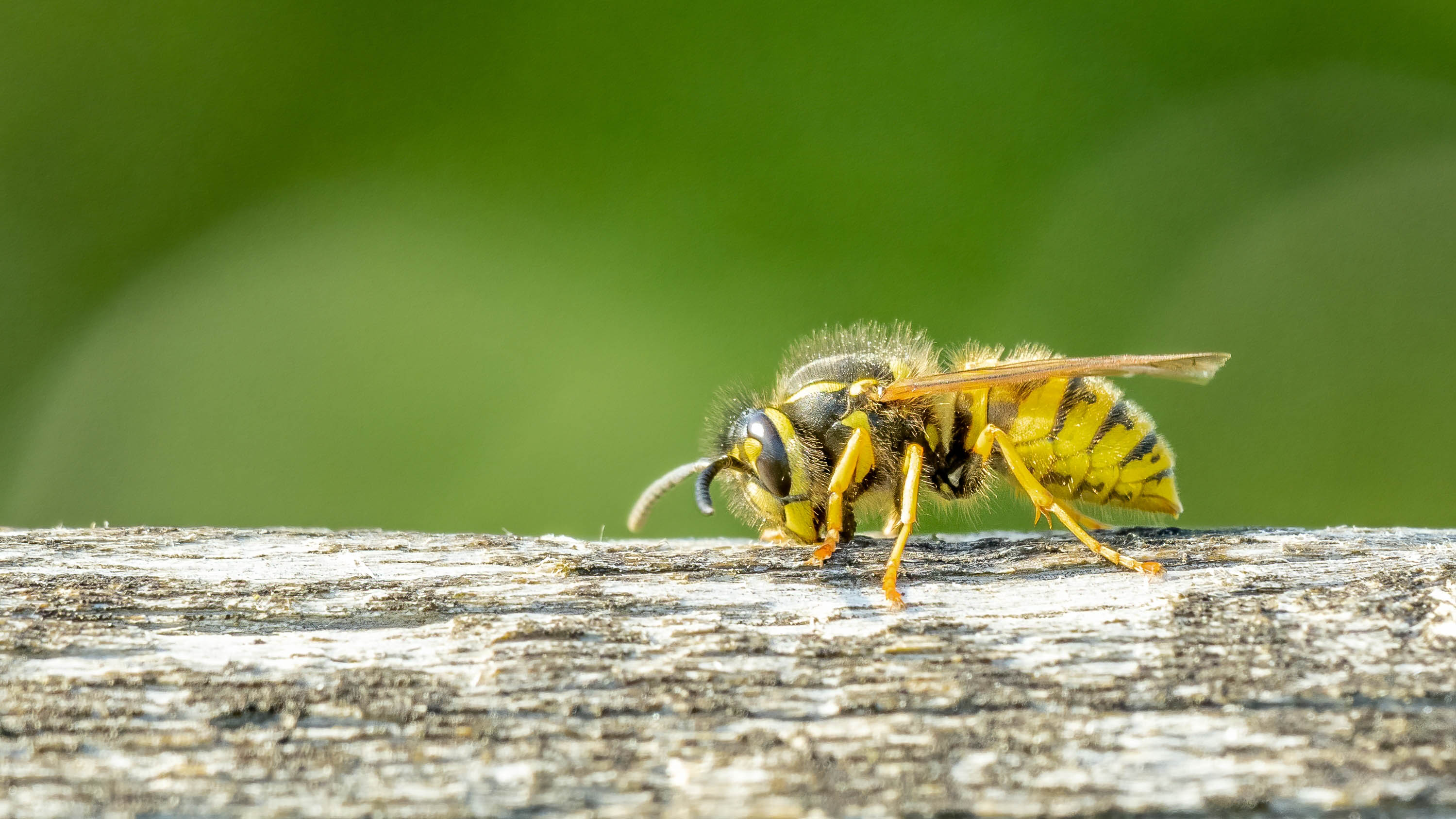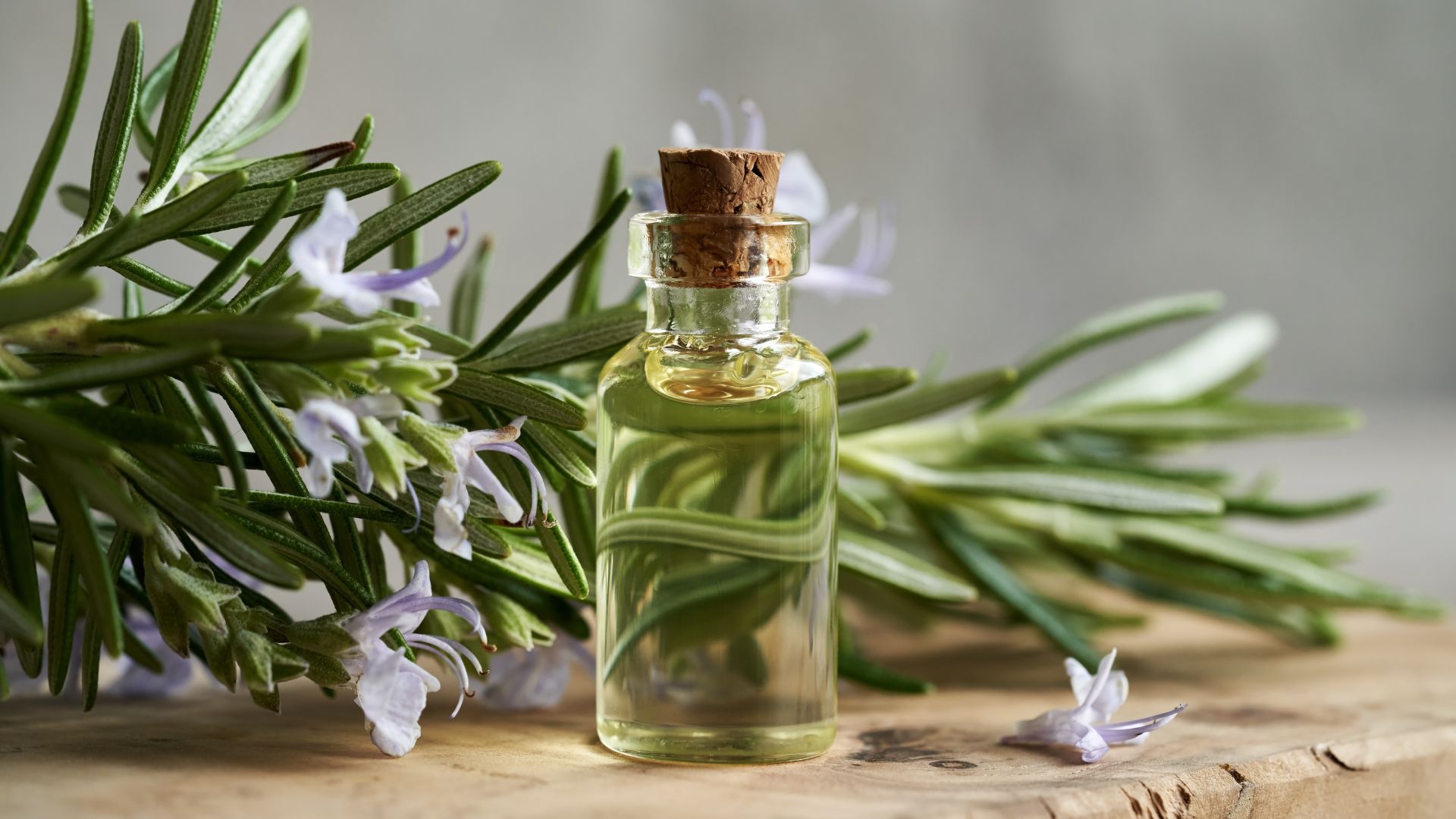
There’s nothing quite like sitting outside in the summer, reading a book or enjoying a refreshing drink in a comfy chair or hammock. But often, you find yourself batting away at unwanted guests like wasps and yellowjackets. These pesky insects can quickly ruin an otherwise peaceful summer day, sending you running back inside to safety.
So what’s the solution? If you’ve looked into wasp-repelling methods before, you may have read that essential oils like rosemary can help keep these pests away from your backyard oasis. Does rosemary oil really repel wasps, or is it an old wives’ tale?
We consulted two experts to determine whether this method is legit or a widespread myth: Steve Rosas, COO and president of Omega Environmental Services, and Peter Rania, president and CEO of Waltham Pest Control Co., Inc.. Here’s what they told us about rosemary oil’s wasp-repellent properties — and how to use it to keep your yard wasp-free.
The effectiveness of rosemary oil against wasps, according to experts

Rosemary oil is often touted as a staple in your bug-repelling arsenal, but where does this claim come from? Although the exact origin is unknown, a 2013 study by Pest Management Science gives the claim its legs. The study tested the efficacy of 21 essential oils, including rosemary, and found 17 to repel yellowjackets and paper wasps significantly.
Our experts agree that rosemary oil is a solid wasp-repellent. “Rosemary oil, in particular, works well against wasps and bees,” explained Rosas. He also mentioned that essential oil blends are “non-toxic and will not harm the wasps, only deter them from the area.” Since wasps are pollinators, it’s imperative to use non-toxic methods to keep them away, and rosemary oil checks that box.
And while wasps hate the smell of rosemary, other pollinators like bees and butterflies are frequent visitors to rosemary shrubs when they bloom. Rosemary has a long blooming window, which means it can attract pollinators to your yard all season long while deterring wasps — a win-win all around.
Why wasps hate rosemary oil

Rosemary oil works well as a wasp repellent because of its pungent smell. Wasps have a surprisingly strong sense of smell and tend to shy away from anything with a strong scent. In fact, a wasp’s sense of smell is so strong that some species have been used to detect hazards like explosives and drugs.
Wasps use their strong sense of smell in a couple of ways. First, they use it to determine where to build their nests — since wasps are territorial, they’ll look elsewhere for a nesting location if they smell other swarms in the area. Second, they use smell to sense (and stay away from) danger. By making your backyard smell strongly of a scent wasps hate, like rosemary, you can encourage them to buzz off and find someone else to bother.
How to use rosemary oil to repel wasps

You can repel wasps from your yard using rosemary oil in several ways. The first is to make a wasp-repellent spray by combining several essential oils in a sprayer bottle. “I would recommend combining rosemary oil with peppermint or eucalyptus oil for the strongest repellent effect,” Rosas advised us. Rania offered another option. “[We] have found rosemary oil combined with eucalyptus and citronella oils provide the strongest natural repellent,” he said.
No matter which blend you choose, add a few drops of each oil and a squeeze of dish soap to a spray bottle and fill it with water. Then, spray the mixture outside to discourage wasps from hanging out in your yard. Keep the spray bottle with you, as you might need to respray several times depending on how long you’re outside.
You can also use an essential oil diffuser to keep wasps away from your patio or porch. This is a fairly simple option: add water to the diffuser up to the fill line and add a few drops of rosemary oil. Then, turn it on and enjoy the aromatic scent while keeping your outdoor area wasp-free. The ASAKUKI Essential Oil Diffuser is highly rated and has a natural design that will blend into any outdoor space.
Alternative solutions for repelling wasps
If you don’t have rosemary oil on hand, don’t fret. There are plenty of other strong scents that wasps detest, as well as alternative methods for repelling wasps without harming them.
“As an environmental consultant with over 25 years of experience, I have found essential oils and natural repellents to be effective pest deterrents,” Rosas said. The 2013 study by Pest Management Science revealed that, alongside rosemary oil, the following oils significantly repelled paper wasps and yellowjackets:
Any of these oils can be used to make a natural wasp-repellent spray or can be diffused when you’re outside to discourage wasps from your backyard.
- Anise
- Citronella
- Clove
- Fennel seed
- Geranium
- Lavender
- Lemongrass
- Patchouli
- Pennyroyal
- Peppermint
- Roman chamomile
- Sage
- Spearmint
- Thyme
- Wintergreen
- Ylang ylang
Several things attract wasps to your yard, so eliminating these elements can also help banish wasps from your outdoor space. Wasps love food waste and trash, so keeping your yard free of food scraps is vital. If you’re eating outside, cover your food or take the plates back inside when finished. And check to make sure the lid is firmly on the trash can — there’s a reason this is a wasp’s favorite hangout.
There are several other ways to keep wasps away without harming them. If you don’t have any essential oils on hand, a spray bottle filled with soapy water may be effective. Alternatively, you can purchase an ultrasonic pest repeller, which uses high-frequency sound to repel all kinds of pests, including insects and rodents, from your home. The Xedus Multi-Functional Electronic Pest Repeller, $31, Amazon, can be used indoors or outdoors and can repel wasps in addition to other pests.







